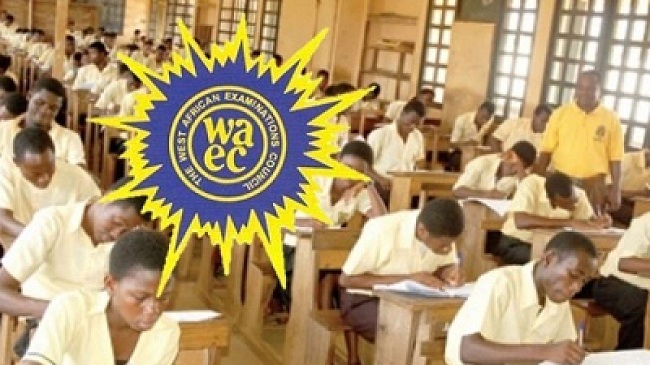

The West African Examinations Council (WAEC) strictly enforces rules to maintain the integrity of its examinations. Examination malpractice undermines the credibility of the educational system and can have severe repercussions for the candidates involved. Below, are various forms of malpractice that WAEC has identified and the potential consequences.
Forms of Examination Malpractice
1. Giraffing

This involves students stretching their necks to look at others’ work, attempting to copy answers during the exam.
2. Use of Unsigned Answer Booklets
Submitting an answer booklet without the required official signatures can lead to suspicion of malpractice.
3. Copying from Each Other
Directly copying answers from another candidate is a clear violation of examination rules.
4. Smuggling Unauthorized Materials
Bringing in cribs, notes, textbooks, or any prepared material into the examination hall is prohibited.
5. Bringing Electronic Devices
Mobile phones, smart wrist-watches, unauthorized calculators, and other electronic devices are not allowed as they can be used to access information illicitly.
6. Writing Notes/Cash in Scripts
Including notes, enclosing money, or writing requests for assistance within the exam script to influence the examiner is forbidden.
7. Submitting Multiple Scripts
Handing in more than one answer script for the same exam without authorization is considered malpractice.
8. Body Inscriptions
Having notes or formulas written on one’s body to use during the exam is not allowed.
9. Multiple Handwriting
Scripts found to have more than one handwriting style can indicate that multiple individuals contributed to the answers, which is against the rules.
10. Insult/Assault on Officials
Any form of verbal or physical abuse directed at examination officials is taken seriously and constitutes malpractice.
11. Unauthorized Timing
Starting the exam before the scheduled time or continuing to write after the exam has ended violates the examination protocols.
12. Impersonation
Having someone else sit the exam on behalf of the candidate is a severe form of fraud.
13. Writing Outside the Hall
Completing parts of the exam outside the designated examination hall is not allowed.
14. Writing with Pencil
Unless explicitly permitted, writing answers in pencil instead of ink is against the rules.
The consequences of engaging in any form of examination malpractice can be severe. WAEC reserves the right to withhold or cancel the results of any candidate found guilty of such offenses.
This can have lasting impacts on the educational and professional future of the candidates involved.
In conclusion, maintaining academic integrity is crucial, and all candidates are urged to comply with examination regulations. Saying no to malpractice not only protects individual futures but also upholds the value and credibility of the educational system as a whole.








